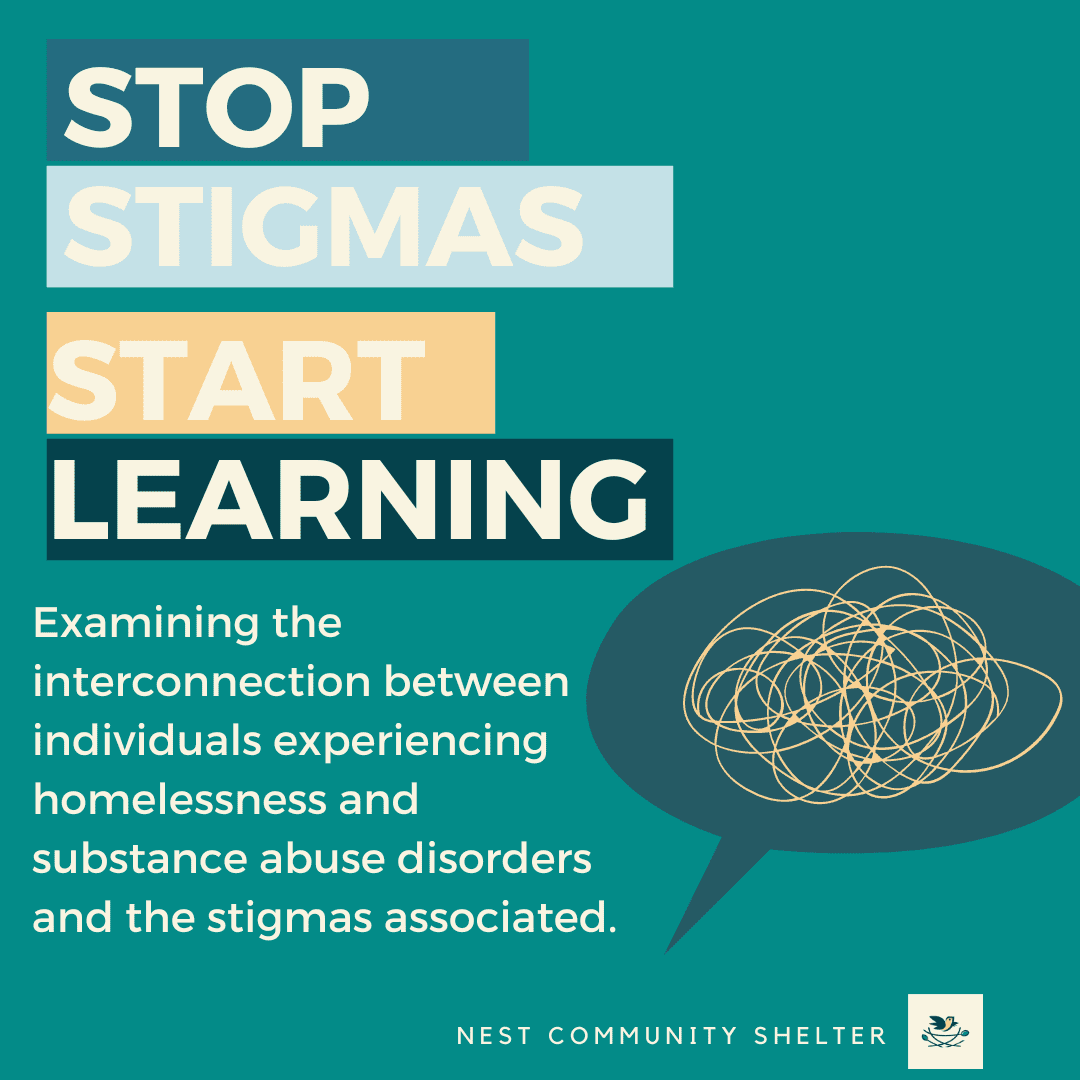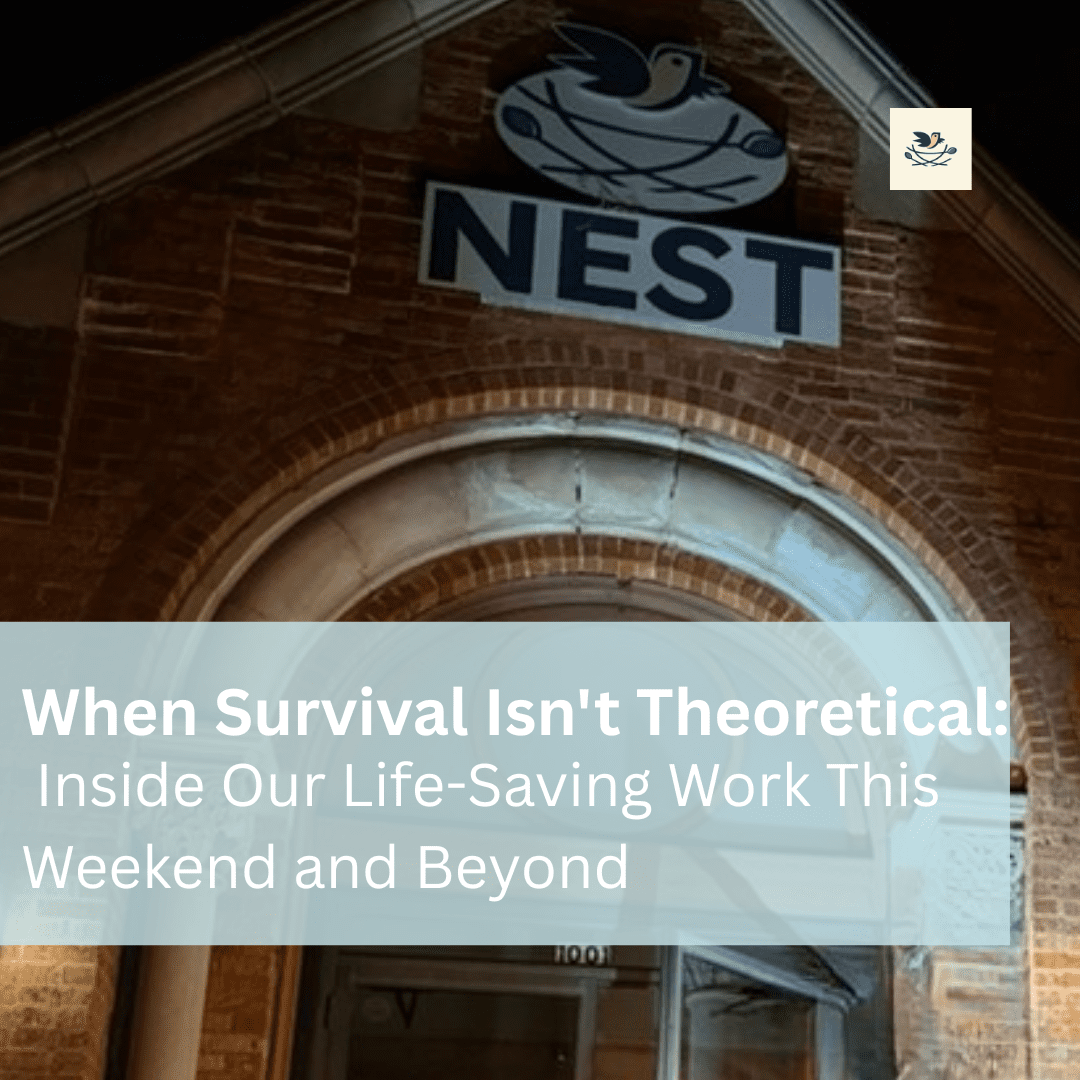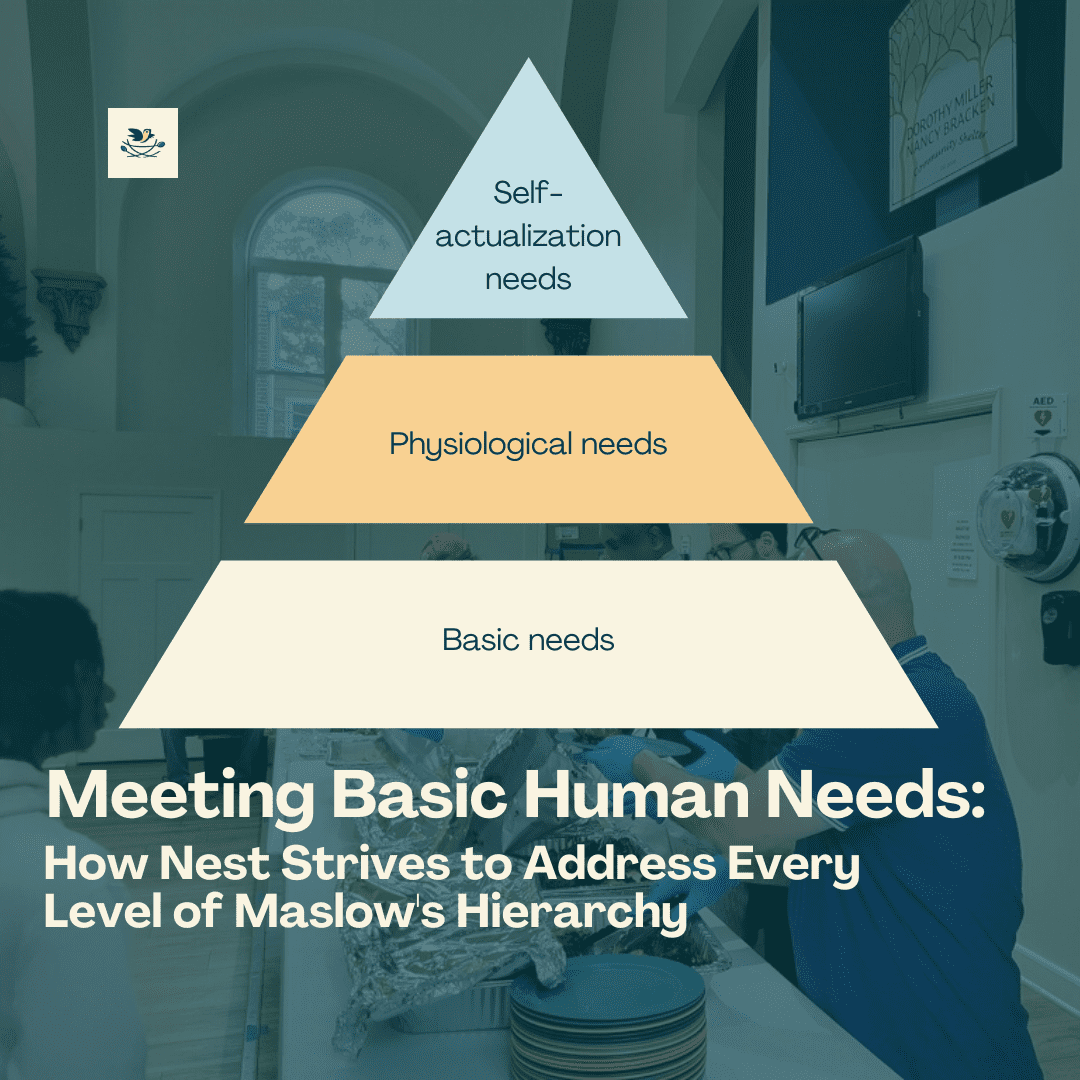
The Oxford Dictionary defines the word stigma as “a mark of disgrace associated with a particular circumstance, quality, or person.” We would add that stigmas are often held communal beliefs by a society put upon an individual when they operate outside of agreed-on social constructs and norms. We believe that it is important to define this term as we speak about the stigmas of experiencing homelessness and enduring a substance abuse disorder. In society today, amongst some, there exists a deeply ingrained stigma surrounding both homelessness and substance abuse disorders. These two realities often intersect for our guests at Nest Community Shelter, weaving a complex web of judgment, misunderstanding, and discrimination. It is our intention to explain and address the inaccuracies in these stigmas because they remain powerful barriers to individuals receiving support for substance abuse and for those experiencing homelessness.
The Stigma of Homelessness
For some, the image of homelessness evokes stereotypes of laziness, incompetence, or even criminality. These misrepresentations perpetuate the powerful stigma attached to those experiencing homelessness, obscuring the complicated factors that contribute to their circumstances.
One common myth leading to the stigma surrounding homelessness is the belief that it is solely a result of personal failure or poor decision-making. This oversimplification fails to acknowledge the systemic issues beyond an individual’s control at times, such as lack of affordable housing, economic inequality, and systemic discrimination that can push individuals into homelessness.
Additionally, there is the additional myth that all homeless individuals are dangerous or unstable, which can lead to fear and avoidance in interactions with them. This fear often stems from a lack of understanding about the diverse range of people who experience homelessness, including families, veterans, and individuals struggling with mental illness. At the end of the day, those experiencing homelessness deserve the same respect and dignity as any other community member.
The Stigma of Substance Abuse Disorders
Similarly, substance abuse disorders are also plagued by stigma and myths, with individuals often being labeled as “addicts” or “junkies,” reducing their humanity to a single aspect of their lives. This stigma arises from misconceptions about addiction being a moral failing or a sign of weakness rather than a chronic medical condition with biological, psychological, and social components.
One of the most damaging aspects of the stigma surrounding substance abuse disorders is the barrier it creates to seeking help. Shame and fear of judgment prevent many individuals from reaching out for support or accessing treatment services, perpetuating a damaging cycle of addiction and isolation.
When Homelessness and Substance Abuse Are Experienced Together:
When homelessness and substance abuse are experienced simultaneously, the stigma multiplies, compounding the obstacles faced by individuals in these circumstances. Homeless individuals with substance abuse disorders often face double discrimination, being judged not only for their housing status but also for their struggles with addiction.
The misconception that homelessness is solely a result of substance abuse further perpetuates this stigma, ignoring the complex factors such as poverty, trauma, and lack of access to healthcare and affordable housing. By reducing homelessness to a consequence of addiction, some overlook the structural inequalities that perpetuate homelessness and hinder recovery.
We also know that individuals experiencing homelessness may turn to substances as a coping mechanism to alleviate the hardships of life on the streets. However, instead of compassion and support, they are met with disdain and condemnation, further entrenching the cycle of addiction and homelessness.
Challenging the Stigma: A Call to Action
It is our goal to educate our community about the stigma surrounding homelessness and substance abuse disorders to challenge misconceptions, promote empathy, and advocate for systemic change. When we recognize the humanity of those affected and acknowledge the complex factors that contribute to their circumstances, we can build a support network and environment for individuals to heal and succeed.
As individual community members, we can challenge stigmas and dispel myths by practicing empathy, compassion, and non-judgmental attitudes toward those experiencing homelessness and substance abuse disorders. By listening to their stories, amplifying their voices, and offering support without discrimination, we can create a more inclusive and compassionate community for all.
In conclusion, the stigma surrounding homelessness and substance abuse disorders remain legitimate barriers to healing, recovery, and social inclusion. By confronting our biases, advocating for systemic change, and fostering empathy and understanding, we can break down the walls of stigma and build a society that embraces the inherent worth and dignity of every individual, regardless of their circumstances.




